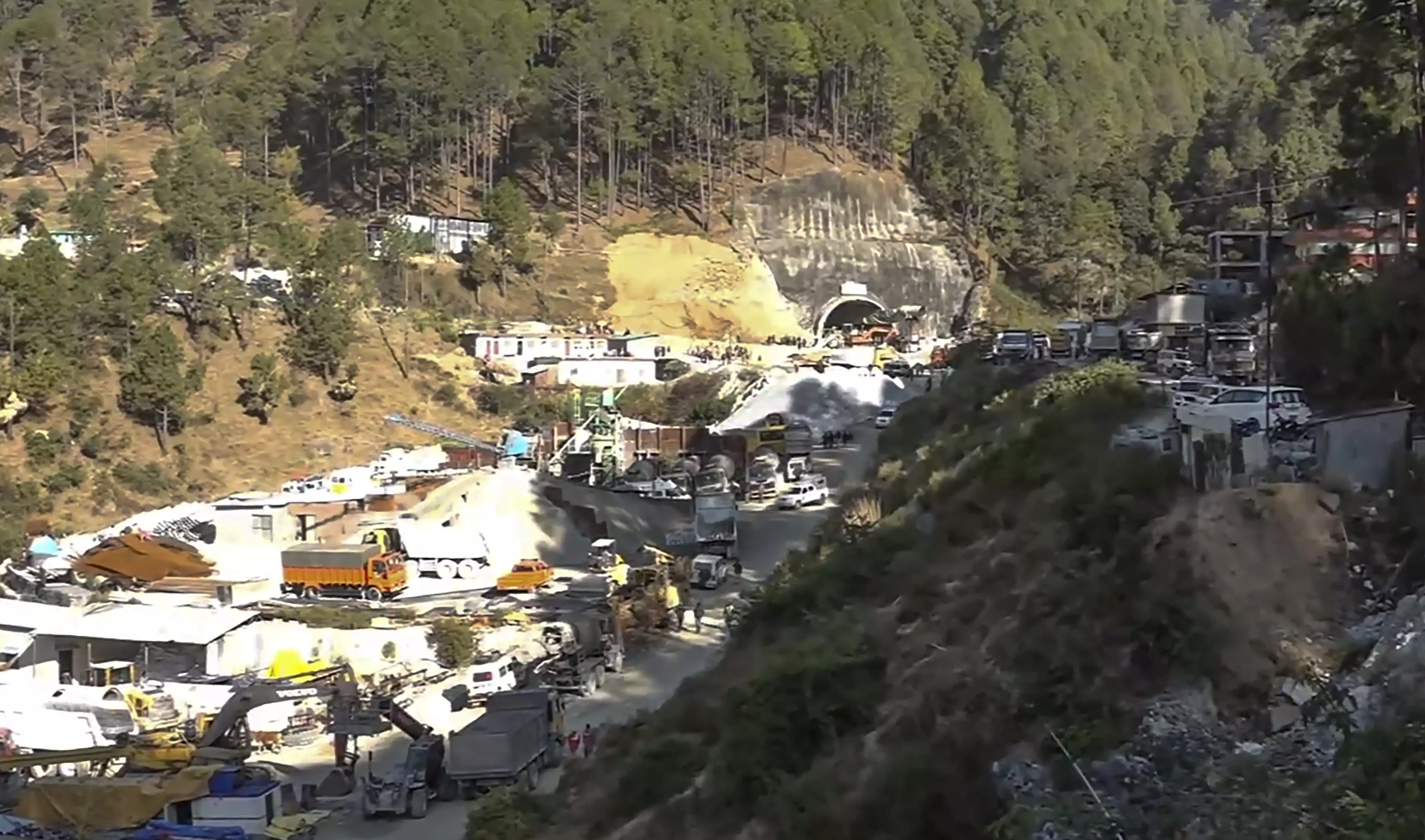
Tunnel collapse | Focus on Himalayas ecology before development: Experts

Dehradun, Nov 13 (PTI) Horrific incidents like the partial collapse of an under construction tunnel on the Char Dham route in Uttarkashi's Silkyara would continue to happen if ecological concerns were not addressed, noted environmentalist Ravi Chopra said on Monday. Chopra had resigned last year as the chairman of a Supreme Court-appointed high-powered committee on Char Dham all-weather road expressing disappointment over the apex court order limiting the panel's jurisdiction to only two 'non defence' stretches of the project.
For development in the Himalayas, it is necessary to first address ecological concerns, he said, adding sustainable development demands approaches that are both geologically and ecologically sound. "Unless this balance is achieved such horrific incidents will continue to happen," Chopra told PTI. A portion of the tunnel between Silkyara and Dandalgaon on the Brahmakhal-Yamunotri national highway collapsed in the early hours of Sunday. Rescue operations are being carried out to evacuate 40 labourers trapped inside.
Some experts are also unhappy with the methods being adopted for the construction of Char Dham all-weather highways, especially the widening of roads.
Former advisor to the State Planning Commission, Harshapati Uniyal, said, "These all-weather roads are a tragedy for Uttarakhand, especially because of the wrong techniques being used for their widening. The river valley alignment cannot be considered safe. If you disturb the slopes, disasters like landslides are inevitable." In the first decade after the formation of Uttarakhand, the number of natural disasters was very less. In 2002, 36 people died in a cloudburst in Ghansali area of Tehri district, while in 2003, a landslide from Varunavat mountain in Uttarkashi town caused huge devastation.
However, after 2010, the number of natural disasters increased significantly. The Kedarnath disaster of June 2013 was of an unprecedented magnitude killing thousands of people, Uniyal said. During monsoon, small and big disasters keep occurring in the state from time to time. During this period, cracks also appeared on Kedarnath and Badrinath highways due to which traffic was disrupted. The Char Dham road project also suffered damage at many places in the Garhwal region. Quoting Chief Minister Pushkar Singh Dhami, Uniyal said there was a loss of about Rs 1,000 crore in the state this monsoon.
In the landslide-zone map presented by ISRO, Rudraprayag district has been shown to be very vulnerable to disasters but the government has not taken any steps towards reducing them, he alleged.
Kedarnath Dham is in Rudraprayag district. Earlier this year, a case of land subsidence was also reported in Joshimath where some residents blamed NTPC's 520 MW Tapovan-Vishnugad hydroelectric project for the problem. Uniyal said due to the underground tunnel of the project passing near the hill town, cracks had appeared in the buildings and roads of the city.
Social activist Shivanand Chamoli, who has been vocal on these issues, said considering the sensitivity of the Himalayas, development projects should be examined from every aspect before permission is given. "If development work is carried out in a haphazard manner, disasters will definitely occur," Chamoli said. PTI

